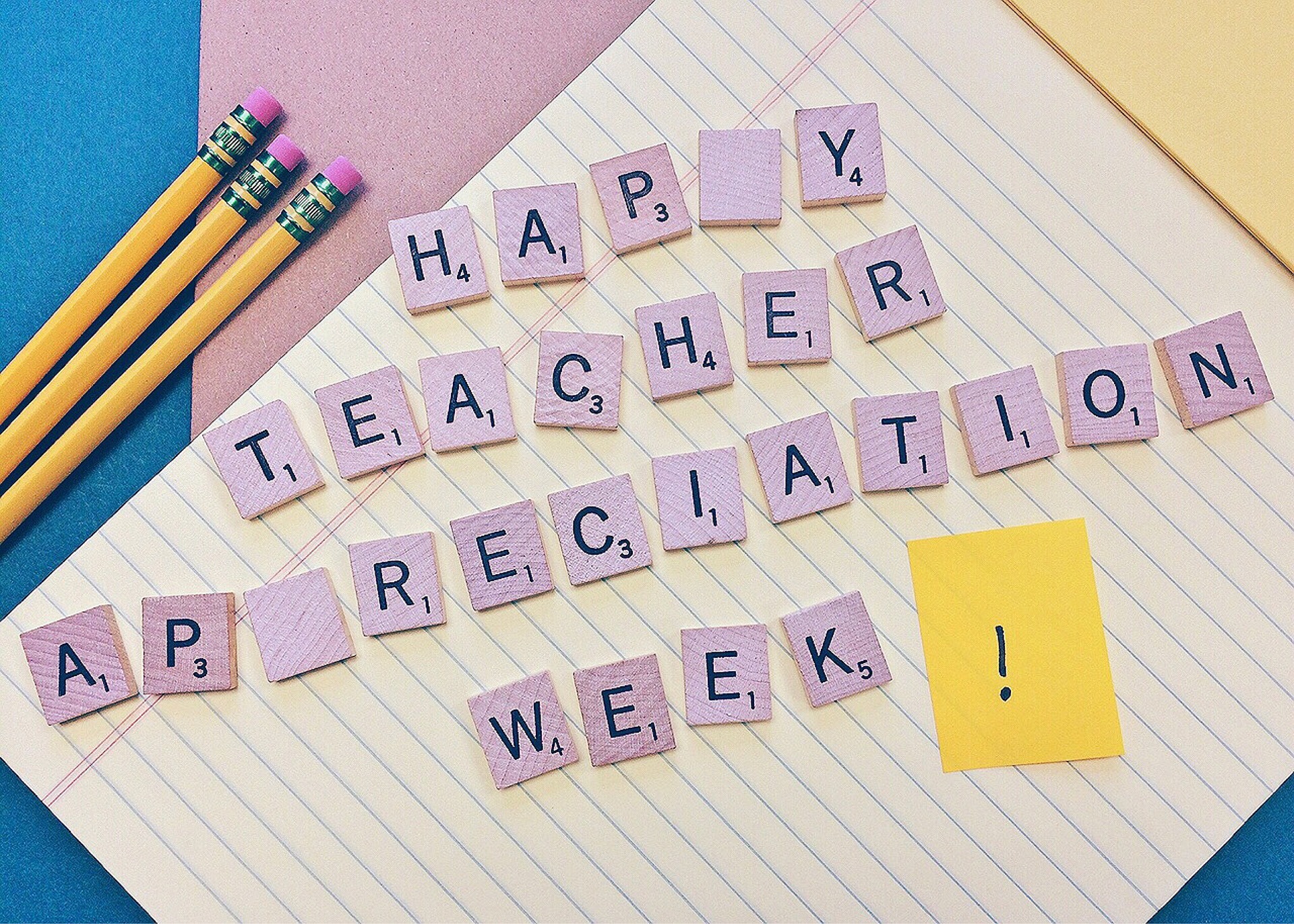
It’s the first day of school. You bring your child with their brand-new backpack loaded down with fresh school supplies and deposit them into the care of a smiling, excited teacher – whom you have only met once or twice. You wonder how their day will go and hope they make friends. You wish you knew their teacher better.
Guess what – your child’s teacher wishes the same thing!
As an elementary school teacher, every year I have the opportunity to get to know 20 or so kids very well. Every year I form a close relationship with each student – but the same cannot be said for each of their families. Every year I see how the varying involvement of each student’s family affects their learning – through the students’ attitude, effort, and engagement. Again and again I see that one of the biggest indicators of a child’s growth is a supportive family at home.
 Last year I had a student who was academically behind all his classmates. He tried his best; it just took him a little longer to learn new concepts. Often, students in this situation get self-conscious, frustrated, and discouraged. But his mom reached out to me early in the year and we formed a partnership – just over email – to help support his learning. She would ask for updates on his progress and how to work with him at home. It was clear every morning that he came to school with fresh determination to tackle the day’s lessons and tackle them he did. Without that support and encouragement from home, this student could have easily decided school wasn’t worth it. He could have felt that it was so hard that it was hopeless. He could have given up. But because his mom and I worked together to reinforce the importance of trying his best every day, he did try, and he grew tremendously.
Last year I had a student who was academically behind all his classmates. He tried his best; it just took him a little longer to learn new concepts. Often, students in this situation get self-conscious, frustrated, and discouraged. But his mom reached out to me early in the year and we formed a partnership – just over email – to help support his learning. She would ask for updates on his progress and how to work with him at home. It was clear every morning that he came to school with fresh determination to tackle the day’s lessons and tackle them he did. Without that support and encouragement from home, this student could have easily decided school wasn’t worth it. He could have felt that it was so hard that it was hopeless. He could have given up. But because his mom and I worked together to reinforce the importance of trying his best every day, he did try, and he grew tremendously.
Spending time to develop a relationship with your child’s teacher – especially if your child is struggling – is one of the best ways you can help support your child’s learning. If you are interested in building a relationship with your child’s teacher but are unsure how to go about it, here are some tips to help you get started:
1. Assume we want the best for your child too
It is not uncommon for parents to assume that since we have 20 students in our care, we are too busy to be really invested in their child. While it is true that there is a lot going on in my classroom at all times, nothing is more important to me than the relationships between me and my students. I love knowing who has their first wiggly tooth, whose uncle is visiting, who is running in their first track competition this weekend and on and on. Each of my students is a whole person and they deserve every chance to feel loved, supported, and successful.
Advice: When you reach out to your child’s teacher with a comment or concern, approach them as if they want the same outcome you do.
Example: “We have noticed that Hedy has been struggling with adding numbers at home and we wanted to know if that is normal for this age? What can we do at home to help her?”
This phrasing helped me feel like the parent understood that we were a team and made me want to answer thoughtfully to help them help their child succeed. Showing understanding and empathy on their part helped us develop a good working relationship right away.
2. Don’t be afraid to ask questions
You may think that after answering approximately 1,000,000 questions a day we get sick of them, but…teachers love to teach! As teachers, we often forget that what has become second nature to us is often unfamiliar to parents. I try my best to explain anything that may be new, unfamiliar, or just extremely specific (looking at you, “new math”), but when I do miss something and a parent reaches out, I welcome the perspective-shift and opportunity to clarify.
Advice: Ask questions! You can ask for clarification on what we are learning, how your child is doing, or how to support your child at home.
Example: “I was confused about Ada’s math homework last night. What exactly is a number bond?”
Example: “How was Isaac’s first day? I’ve been a nervous wreck – I hope he did better than me!”
When you ask questions, we feel like you are interested in what is happening in the classroom and are actively involved in your child’s learning. We love to know our students’ families are just as invested in the learning process as we are, and we are happy to answer questions to help you support your child at home.
3. Insider Trading Tip! Take the first step
Reach out to your child’s teacher first to create a relationship. All you have to do is send a nice email! It may sound like a ‘hack’, but who doesn’t love a bit of appreciation? Even a simple “Nikola came home smiling today. He is really enjoying school!” brightens a teacher’s day and greases the wheels to get a parent-teacher relationship off the ground. When we have limited in-person contact with our students’ families, a sincere compliment or sweet thank you helps the relationship start off on the right foot. You don’t even have to do it in September – I save every nice email and note and keep them around all year.
Advice: If your child is gushing about a lesson or you really appreciate a particular school project – tell the teacher!
Example: “Oh. My. Gosh. The calendar is amazing! So thoughtful and functional!”
When a child is struggling, reaching out to families who I don’t have a relationship with can feel awkward and uncomfortable. No one wants to deliver a bad news “cold call.” However, if I have already connected with a parent, no matter how briefly, I feel much more comfortable sharing progress updates and even smaller details about their child’s day, their growth, their silliness, and their successes. I absolutely want to have a good relationship with every family, but with 40 parents per class to approach, the process can be daunting. When a parent reaches out first, a to-do list task immediately becomes a partnership.
4. Prioritize teacher communications
After you establish a relationship with your child’s teacher, the next key to success is to prioritize their emails and papers sent home. I know that each family has a lot going on and school is just one component. However, I keep that in mind when I send emails or newsletters home and try to only reach out when it’s important or time sensitive.
Advice: Prioritize teacher communications to ensure you and your child are well-informed and prepared for success.
Example: Some email providers, like Gmail, allow you to mark your child’s school and teacher emails as important.
I’ve had many cases where parents didn’t prioritize school communications, only to panic later when their child was unprepared for a big test, didn’t bring their project for presentation day, or didn’t dress appropriately for picture day. In addition to helping you and your child be prepared for school each day, some time-sensitive emails become real missed opportunities if not attended to promptly: think field trip chaperones and parent-teacher conference sign-ups. Prioritizing teacher emails is an easy life-hack to improve the relationship with your child’s teacher and help your child succeed in school.
5. Attend parent-teacher conferences
These are often the only times that you will discuss your child face-to-face with your child’s teacher. Teachers put a lot of effort into preparing for conferences to maximize your time and help you understand your child’s progress and growth. I collect student work, assemble take-home resources, and prepare the classroom to showcase our learning. In addition to being an opportunity to talk, conferences also present a rare opportunity to glimpse your child’s classroom and understand a little more about what their days are like. That’s why, although virtual or phone conferences are possible, I strongly recommend meeting with your child’s teacher in person if possible.
Advice: Take advantage of the opportunity to meet with your child’s teacher in person if possible. If it’s not, reach out to see what options are available.
Example: If you can’t make conference day, you could say “Unfortunately I will be out of town that day. Is there another day we could meet next week to discuss Albert?”
 We understand that parents are busy and sometimes the scheduling doesn’t work out. Although I prefer in-person conferences, I would much rather have a phone conference with a parent than none at all. After all, it is much easier to keep a parent updated than a faceless email inbox. Most teachers are flexible, so reach out to them. I really value the chance to devote time to discussing each child in detail with their family and believe it is well worth your time too, both for you and your child’s sake.
We understand that parents are busy and sometimes the scheduling doesn’t work out. Although I prefer in-person conferences, I would much rather have a phone conference with a parent than none at all. After all, it is much easier to keep a parent updated than a faceless email inbox. Most teachers are flexible, so reach out to them. I really value the chance to devote time to discussing each child in detail with their family and believe it is well worth your time too, both for you and your child’s sake.
At the end of the day, it’s all about your child. Spending time to develop a relationship with your child’s teacher is one of the best ways you can help support your child’s learning. When you know what is happening in the classroom, you can reinforce it at home. This is crucial to helping your child understand that school isn’t just a thing they have to do, but something important, worth their time, and worth taking seriously. I hope these tips allow you and your child’s teacher to team up to help your child succeed.
- Building a Relationship with Your Child’s Teacher - September 19, 2022
